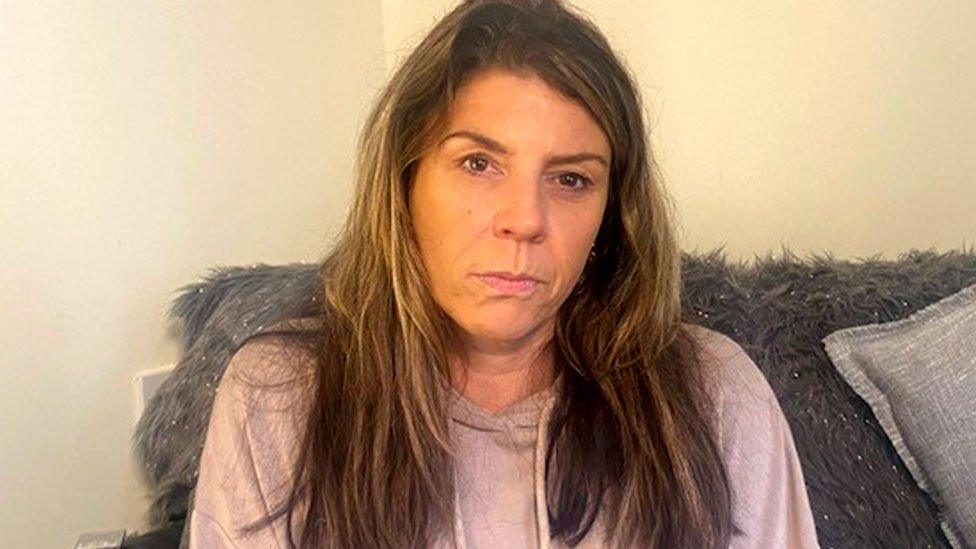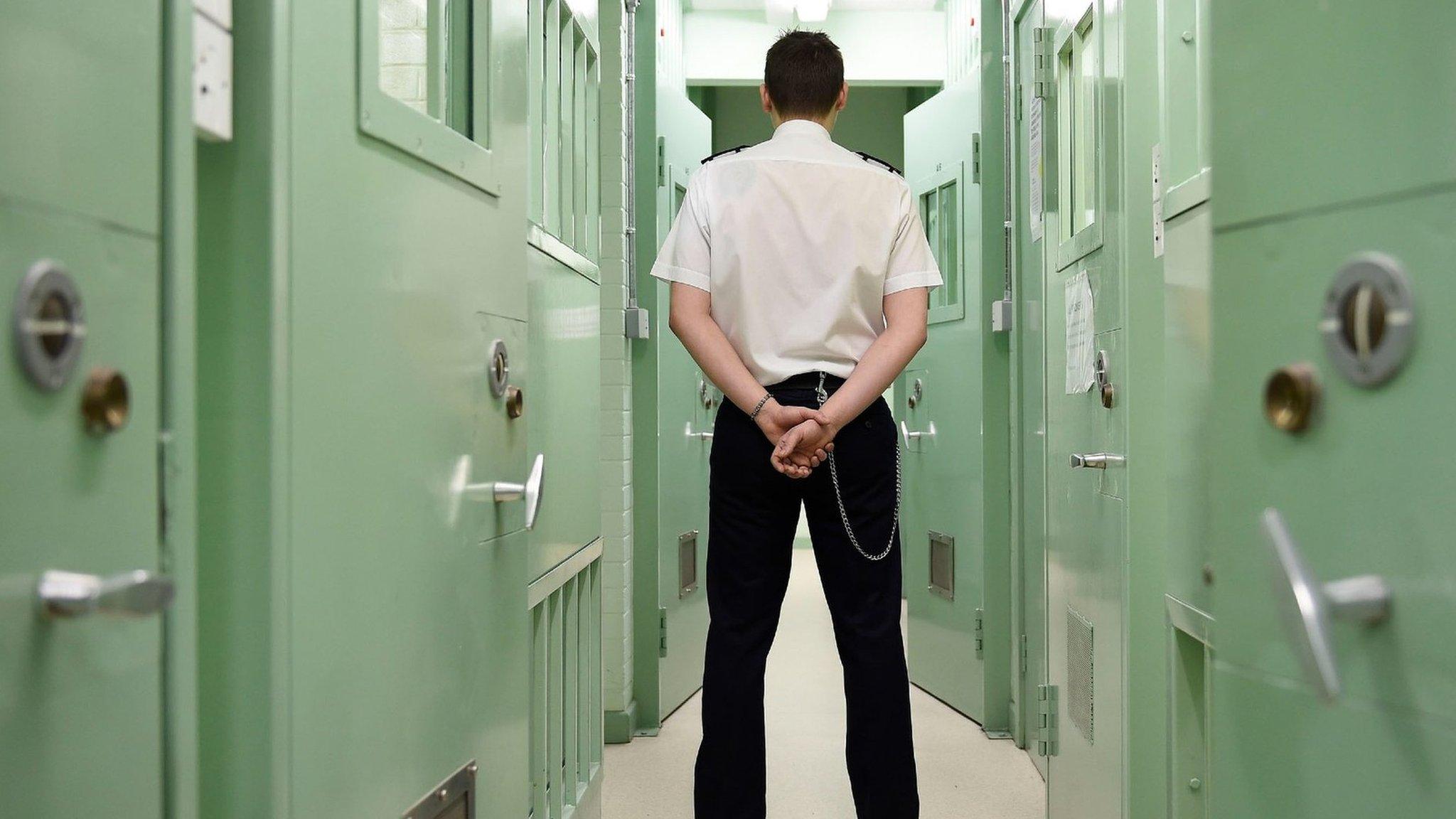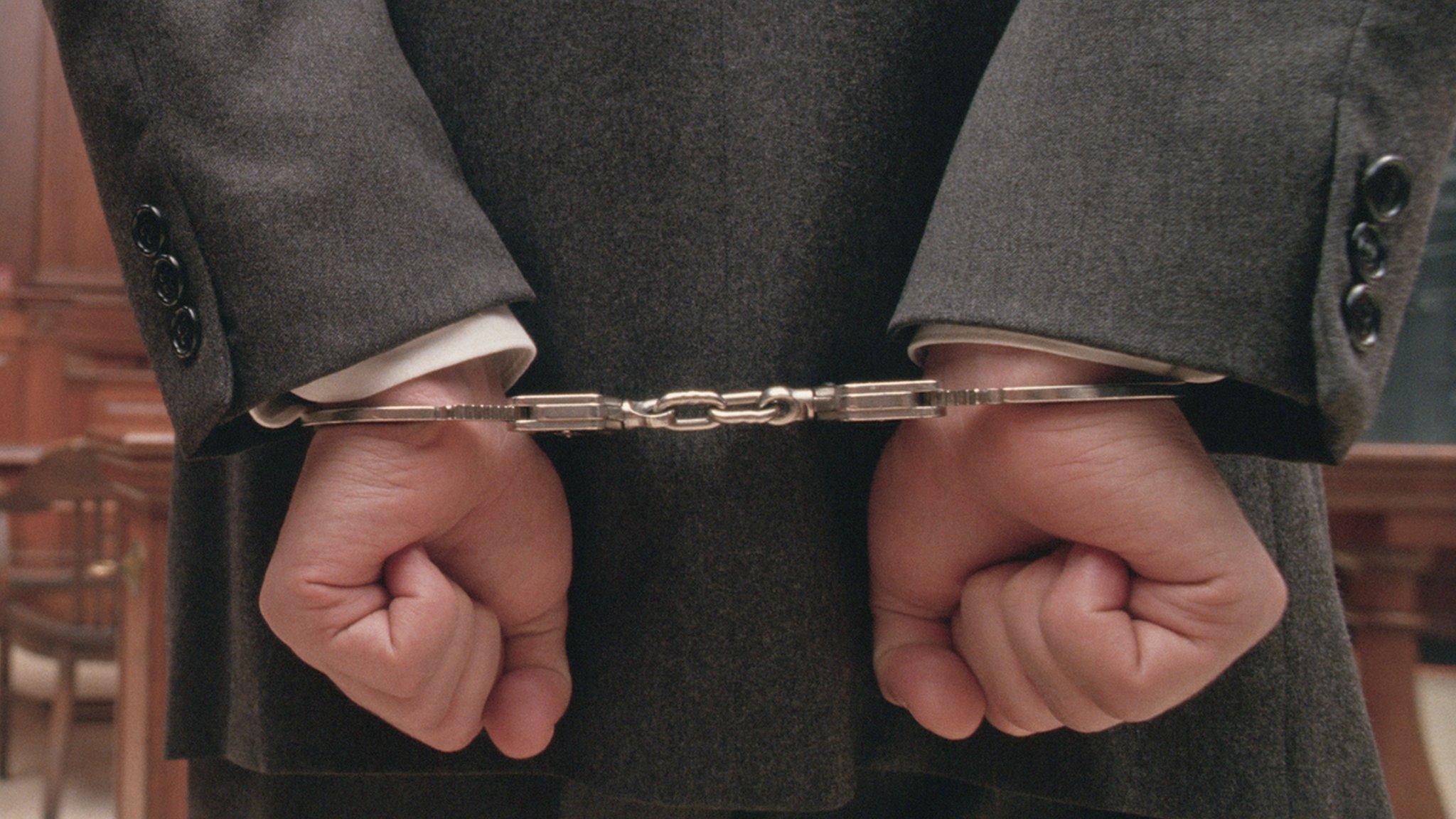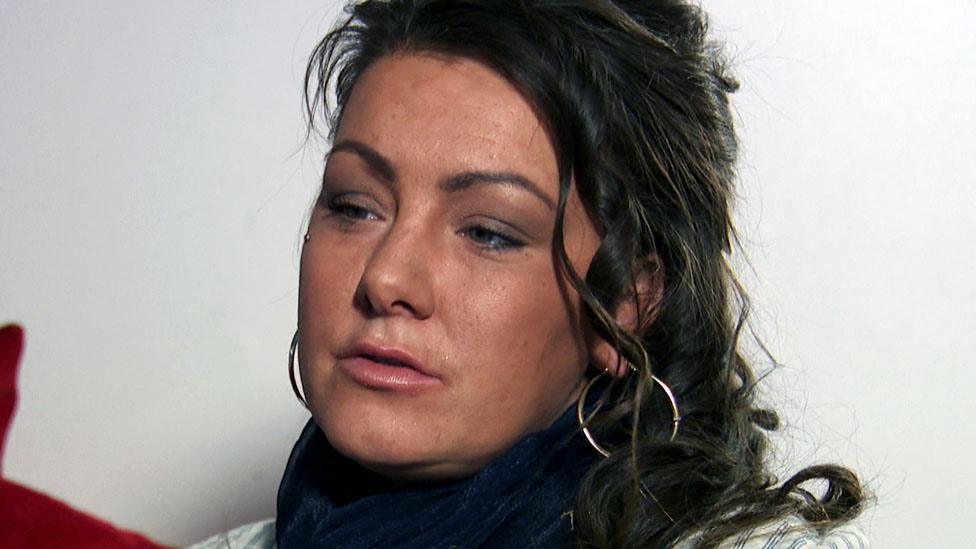Sentencing guidelines: 'Hit-run-driver who killed my son avoided jail'
- Published

Amanda McIlquham believes the man who killed her son should be behind bars
A mother whose son was killed by a 22-year-old hit-and-run driver says Scotland's sentencing guidelines allow young people to "do what they want".
Amanda McIlquham's son Steven, 15, died after being struck by a car doing 45mph in a 30mph zone on New Year's Day 2020.
Brian Buchanan, 22, admitted causing Steven's death by careless driving and failing to stop after the fatal crash, but avoided jail because of his age.
The new guidelines for under 25s were introduced in Scotland last January.
But they have sparked fresh debate after a judge's decision not to send a 21-year-old man, Sean Hogg - who raped a 13-year-old schoolgirl when he was 17 - to prison.
Hogg was ordered to do 270 hours of community work and also put under supervision and on the sex offenders register for three years.
Judge Lord Lake said that if the offence had been committed by an adult over 25, Hogg would have received a jail sentence of four or five years.
The sentence has been criticized by rape victims as an "embarrassment to the Scottish justice system", while a senior trial lawyer called it "an extraordinary sentence".
Ms McIlquham, from Wishaw, North Lanarkshire, said the sentence handed out to the driver who killed her son meant she had "no faith in the justice system".
Despite previous convictions for careless driving and speeding, Buchanan was handed 300 hours of unpaid work, a three-year driving ban and ordered to wear a tag for six months.
Ms McIlquham told the BBC's Good Morning Scotland programme that the guidelines, which make rehabilitation rather than punishment a primary consideration but don't exclude prison as an option, sent the wrong message.
"It just says to anyone under 25 - go out and do what you want, because you'll not get jail, you'll get a tag, you'll get community service and then you will get your life back," she said.
"What happens to victims and the victims' family? We have a life sentence. But they can live their life again, start afresh.
"Whether my son could have been saved or not, which I doubt very much, he [Buchanan] could have been the only person who could have saved him and he didn't. He drove away."

Steven McIlquham, pictured with his mum and sister Erin at Christmas in 2018
Scotland's sentencing guidelines, which were introduced in January 2022. are rooted in scientific research that suggests the human brain and human beings do not reach full maturity until their late 20s.
It highlighted that young people may lack the capacity to exercise judgement and respond appropriately to adverse situations, might not appreciate the impact of their behaviour on others and are more likely to act impetuously.
But Ms McIlquham believes that young people must assume responsibility for their actions.
She added: "It sends out a message to young kids that you can go out, do what you want and you won't get much for it.
"Steven was everything to me and my family. It doesn't get any easier, it gets harder. He [Buchanan] has nothing and my family has got a life sentence. I will never get over the death of my son, ever."
How do the guidelines differ for young people?
David Mackie, a retired sheriff who sat on the bench for 18 years, said sentencing guidelines for under 25s sit alongside more general guidelines for judges. These state the purpose of a sentence, in no order of priority, should be:
Protection of the public
Punishment
Rehabilitation of offenders, giving them an opportunity to make amends (restorative justice)
Expressing disapproval of offending behaviour (deterrents)
The difference when sentencing under 25s was that rehabilitation was a "primary consideration", he said.
Those are usually sentences which involve a community payback order and supervision, although Mr Mackie said they also include different programmes for domestic abuse and sexual abuse.
Individuals will work with a criminal justice social worker on "issues that brought them into conflict with the law", for a period typically between one and three years, he told Good Morning Scotland.
"A social worker will challenge the individual on their behaviour and attitudes in regular sessions, and give them work to do at home," he explained.
"It is a process where society holds up a mirror to the offender and says 'this is what you've done, we are challenging you as to why you have done it and to help you find a better way'."
Unpaid community work "doesn't just involve litter picking", he added.
'Life circumstances'
Mr Mackie said he welcomed the new guidelines, which he said demonstrated "Scotland as a nation has accepted the science behind the development of the human brain".
"Alongside the maturity aspect is the recognition that trauma has an impact on the physical development of the brain," he added.
"It recognises that the vast majority of people who end up in conflict with the law do so as a consequence of life circumstances, more than because they are bad people."
Research showed that adverse childhood experiences - "absent fathers, domestic abuse, sexual abuse, the list goes on" - made young people more likely to end up in the criminal justice system, he added.

Sean Hogg was handed a community sentence after raping a 13-year-old when he was 17
First Minister Humza Yousaf said on Tuesday he was "committed to rehabilitation" but could "understand why people had concern" about the sentence handed to Hogg.
Scottish Conservative justice spokesman Jamie Greene has called for a review of the sentencing guidelines.
He said while rehabilitation is a focus for offenders under 25, punishment should also reflect the seriousness of the crime.
"There has to be an element of punishment in a crime such as rape. People are right to ask questions about this case," he added.
Mr Greene said a lack of transparency around community sentences, with "thousands of hours written off" by cash-strapped local authorities, was also a factor.
'Unduly lenient'
The Scottish Sentencing Council said the guidelines were based on "robust, independently-assessed evidence from around the world into the cognitive development of young people".
A spokeswoman added: "The guideline makes it clear that the full range of sentencing options remains open to the court, including imprisonment."
The council also confirmed it was currently developing a guideline on sentencing rape offences, which will include a full public consultation.
The Crown Office has said it would consider whether Hogg's sentence was "unduly lenient."
Court papers stated Hogg, of Hamilton, South Lanarkshire, threatened the girl, seized her by the wrists and forced her to carry out a sex act before raping her in Dalkeith Country Park, Midlothian, in 2018.
He had denied the charge and Donald Findlay KC, defending Hogg, told the court an appeal was planned.
- Published4 April 2023

- Published3 April 2023

- Published12 November 2022

- Published26 January 2022

- Published15 September 2021

- Published28 February 2020
